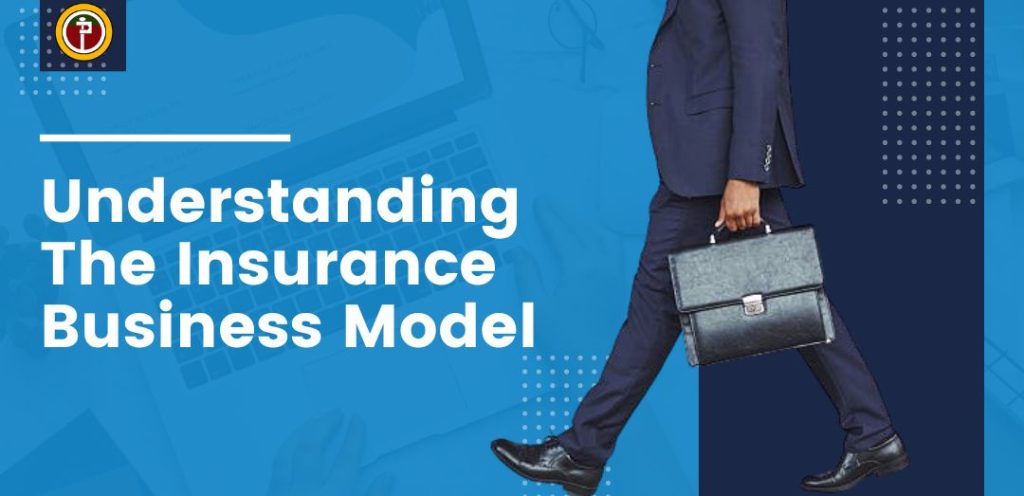All over the civilized world, the insurance business is recognized as one critical business that supports other businesses. However, it seems that many people in Nigeria are still unaware of the actual business of the insurers.
This article attempts to demystify the insurance business by explaining what insurers do in reality to make their money. Also, it underscores the role of Transparent Protection Ltd/Gte (TPL), as a public watchdog in the insurance industry in Nigeria.
The Insurance Business Model Defined
A business model typically represents how a business is structured to make money. It should be noted that the objective of every commercial venture is to make a profit. No business can survive without making money. Insurers are no exception. They are in the business of making money.
Therefore, the insurance business model describes how insurance companies make money from their businesses. Although there are two broad categorizations of insurance business, namely life insurance business, and non-life (general) insurance business, this article is focused on non-life insurance business.
Major Avenues for Insurer’s Income
There are two major avenues from which an insurance company can realize income. The first is underwriting and the other is investment. The primary business of the insurer is underwriting and claims settlement. Underwriting in the insurance business is the process of assessing risk and fixing the premium payable on a particular risk.
A potential insured makes an offer of his risk to the insurer who is a professional risk carrier or more technically, the underwriter. Where the risk is acceptable, the insurer makes a quote, meaning the rate of premium for which the risk will be undertaken by the insurer.
Where the rate is acceptable to the insured, he makes payment of the premium and a policy is issued by the insurer.
Underwriting Profit
Upon receiving a premium on a particular risk, the insurer mathematically calculates the maximum amount that it may be called upon to pay in claims settlement should the risk crystalize. This is called the risk premium.
A fraction of the remaining premium is kept in a contingency account while the remainder goes into administrative expenses. The difference between the premium received in a particular portfolio of risk and the claims paid out on the portfolio constitutes underwriting profit.
Profits from all portfolios written within an insurance year are called gross underwriting profit.
Investment Income
Given the usual time lag between receiving premiums and paying claims, which may occur during the insurance year, the premiums collected by the insurers constitute a float, which the insurer invests for profits.
The fund realized from the insurer’s investment is called investment income. The insurers invest in property, shares, bonds, etc.
Why claim amount is usually higher than Premium
One question that is on the lips of many potential policyholders is; why is it that the premium accepted in respect of a particular risk is manifestly smaller than the amount of claim that the insurer would be called upon to pay ultimately?
The reason is simply that the insurance business is founded on the principle of large numbers. A large number of people with similar risk exposures come together to create a pool of funds. Those who are unlucky to suffer loss will be indemnified or compensated from the pool.
Reversed Production Cycle
Technically speaking, the insurance business model operates on a reversed production cycle. This means that unlike the banker, whose obligation is certain, the obligation of the insurer is always uncertain. For this reason, premiums are paid in advance to enable the insurer to invest part of it and to realize income therefrom.
Again, the insurer is called upon to settle claims only in the event of loss. Unless there is a loss, the insured receives nothing. The argument has been that although there may be no claim, the insured has received peace of mind.
However, there is a growing practice whereby a fraction of the premium paid by the insured is returned to him, in the event of no loss occurring during the insurance year. This practice is yet to take root in Nigeria.
The Role of TPL
As a public watchdog, TPL is obligated to ensure that the insurers settle all genuine claims. It is of the utmost importance to TPL that the insurers at all times have the capacity to settle all genuine claims that are made against them by the policyholders.
TPL has observed that the claims ratio in the insurance industry in Nigeria has continued to hover between 20 and 30 percent. This is significantly low when compared to some other jurisdictions with comparative indices.
What this means is that the claims awareness in the country is extremely low. It might also imply that some insurers are not paying claims as they ought to. Moreover, most policyholders seem to be unaware that Motor Vehicle (Third Party) Insurance Policy is subject to claims.
It is even worse to observe that in recent times, the Complaints Bureau established by the insurance regulator, the National Insurance Commission (NAICOM) under the provision of Section 8 of the National Insurance Commission Act, 1997 has been relatively redundant with a countless number of pending unresolved complaints, thereby leaving many claimants without succor.
Our Position
TPL insists on prompt settlement of all genuine claims. To this end, we advocate comprehensive restructuring of the Complaint Bureau, including by having a full-fledged Insurance Industry Tribunal, established through the Insurance Bill which is currently undergoing legislative processes at the National Assembly.
In conclusion, this short article has attempted to explain the insurance business model, which represents the major avenues through which insurers make their money. Also, this article has explained the basis for the insured’s claims settlement expectation. TPL as a public watchdog, is always available to provide claims support to the vulnerable.
On this note, TPL is inviting anyone with genuine unsettled claim(s) to contact us for immediate intervention. TPL has all the necessary capacities to assist and support policyholders in their claims processing and to strategically intervene, including by instituting legal proceedings at the appropriate courts in Nigeria to ensure that justice is done in the event of a clear case of injustice by insurers.
Take advantage of the next article, subscribe now!
Have questions about claim settlements or need assistance with your insurance policy? Our team is here to help! Reach out to us via email at info@tplng.com or give us a call at 0905-776-6182. We’re committed to ensuring genuine claim settlements and supporting our valued members.
TPL, your satisfaction is our priority.




